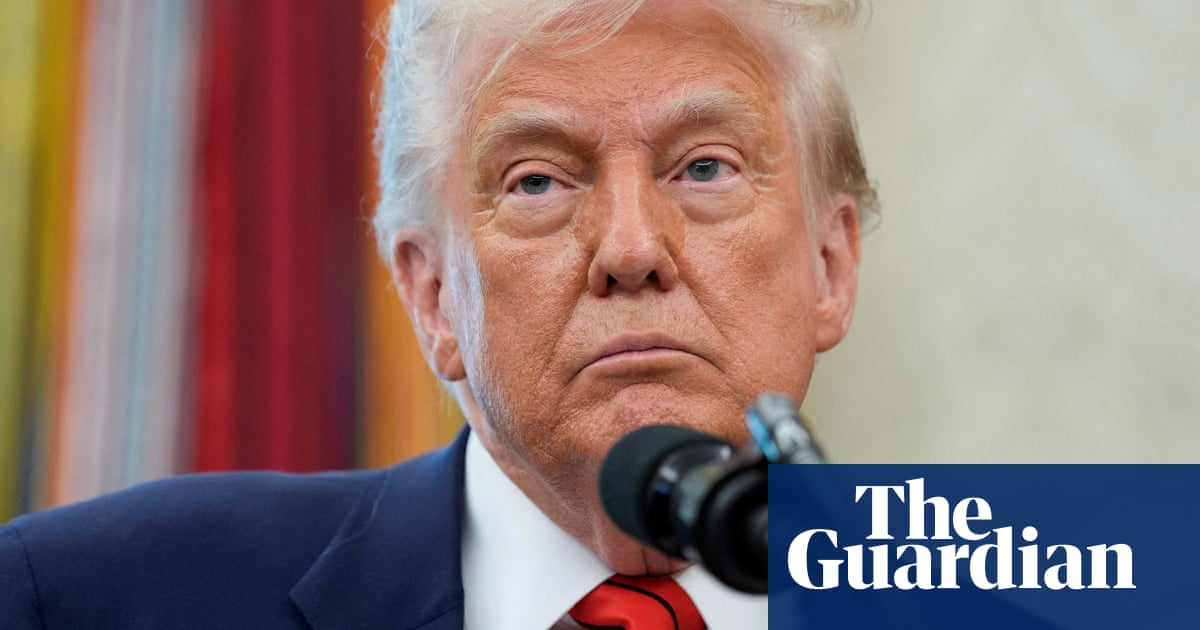Ezra Klein, the New York Times podcast host and progressive media’s undisputed nerd king, starts his new book with something of a palate cleanser for our troubled times. For a few paragraphs, he and his co-author, the Atlantic journalist Derek Thompson, whisk us out of the grim reality of contemporary politics to a world of Abundance (the word they picked as their title).
“You open your eyes at dawn and turn in the cool bedsheets,” they purr, before conjuring a near-future utopia where the cost of living crisis is a distant memory. “You live in a cocoon of energy so clean it barely leaves a carbon trace and so cheap you can scarcely find it on your monthly bill.” The fridge is full of fresh fruit and vegetables from skyscraper farms that sit amid rewilded landscapes. This is what we can look forward to, they say, if we sweep away the bureaucratic cobwebs that mean government too often gets in the way of innovation, rather than leading it.
This 2050 sure looks great from the vantage point of 2025, where, Klein tells me, “it feels like we are in one of the darkest imaginable timelines”. He lives in New York, but is speaking to me now from a nondescript hotel bedroom in the Bay Area, at the beginning of a busy day of book promotion. It’s hot and the curtains are drawn, his neat beard, charcoal sweater and grey-framed glasses adding to a weirdly monochrome effect. Somewhat reassuringly, his delivery is a bit more hesitant than on his podcast, the Ezra Klein show, in which he holds forth in perfectly formed sentences.
“I said, prior to the election, that this is going to be much worse than the first term,” he continues. “Donald Trump’s fundamental strength as a human being is disinhibition, for better and for worse. In his first term, he was surrounded by inhibitors, the people who staffed his White House, a Republican party he did not fully control. [For] the second term, all of the planning [was] for him to be surrounded by enablers and accelerators. Even with that, I think it’s been worse than I would have predicted.”

It’s a terrifying picture, and deliberately so, he says. “If you look throughout the administration, what they are doing is breaking the government over their knee so it can be put into the control of Trump and the people around him. I think almost everything else going on is noise … There is a dimension of this that is about intimidation, and Russ Vought [the head of the Office of Management and Budget] has said this. He said: You have to traumatise the civil servants. That was the word he used: traumatise.”
These are indeed extraordinary times, but the vandalism going on at a federal level must feel particularly bizarre for a journalist who has been observing and writing earnestly about policy and politics since he was a teenager. He turns 41 in May, so can no longer be described as a “wunderkind”, but he remains one of America’s most influential commentators. Plucked from the leftwing blogosphere by The American Prospect and then the Washington Post (where, by 25, he had his own assistant and was posting 20 stories a day to the paper’s Wonkblog), in 2014 he left to co-found Vox news.
In 2020, he joined the New York Times, and since then has performed a sort of sense-making service for disturbed liberals, deploying a formidable ability to synthesise and clarify. But his journalism is also designed to influence the debate – something that became especially clear in the run-up to the 2024 election, when he led the drumbeat for Biden to abandon his bid for a second term. That happened – but too late, he argues, for the vice-president to have been in with a fighting chance.
Now, a book that – under a Harris administration – might have been “a friendly critique with some ideas for trying to make government in blue states and at the federal level a bit faster and more responsive” has emerged into a world that looks very different. Arguably, it has a much tougher job on its hands. Klein and Thompson’s core thesis is that government is so hamstrung by regulation, legal challenge and nimbyism that it isn’t able to make good on its promises – and that this is lethal to liberals, whose raison d’etre is to use the state to improve people’s lives.
It’s the reason there’s a housing crisis in places such as New York and San Francisco (and why the projected cost of building a public toilet in the latter city hit $1.7m); why there’s still no high-speed rail in California despite the political will (and money) having been there for decades; why Biden’s $42bn for rural broadband, approved in 2021, was barely spent by the time he left office. There are jaw-dropping examples of sclerosis and wrong-headedness: the failure of rail to meet stringent environmental conditions, effectively forcing Californians to use a more polluting alternative, cars; public grants for housing construction with so many strings attached they can end up inflating the cost by more than the subsidy itself. There are similar problems in other advanced economies, especially Britain, which has its own recent history of 44,000-page impact assessments holding up green energy projects, and more.
It adds up to a powerful case for stripping back bureaucracy – particularly given the need to rapidly roll out renewable energy infrastructure. But with the notion of tackling government inefficiency so heavily associated with Elon Musk’s so-called Department of Government Efficiency (Doge), will this agenda now be seen as toxic by the left? Is it, in fact, precisely the worst time to be making these arguments?
“People keep telling me this,” Klein says, with bemused frustration. He believes the opposite is true. “[Our] central question has been filed to a razor-sharp edge by this exact moment: can liberal democracy deliver? Or is it going to be handed over to privatisers and kleptocrats?”

Actual reform – rather than wanton destruction – is all the more urgent now that we’ve seen what happens when the state fails to effect positive change. “Look, the fact that the Biden administration was not able, despite passing all this historic legislation, to deliver government improvements on a timeline people could feel, and that that helped open the door to the return of Donald Trump, who is now running a hack and slash operation to destroy government under the guise of efficiency – that is exactly why it is really important liberals make government work.
“If you want to marginalise the most dangerous political movements, the strongmen who will come in and tell you: ‘I alone can fix it, by ignoring the laws and privatising the state’ – then you need to offer people the fruits of effective government.”
It’s not like the left doesn’t have a tradition of radical action. “I think a lot about how when Medicare passed in ’65 it delivered its health insurance cards a year later. When the Affordable Care Act passed in 2010, it delivered health insurance four years later. This is a problem for democracy.”
What if this is democracy functioning as it’s supposed to, though: preventing hasty action; stopping developers running roughshod over the views of local people; making sure power isn’t abused? The Chinese Communist party builds a lot of high-speed rail and solar farms, but is that the system we want to emulate? “I don’t want less democracy,” Klein says. “I want less vetocracy.” He points out that the people who show up at planning meetings to protest against new affordable housing on their street aren’t the ones who will benefit from it, they’re the incumbents protecting a status quo they like. That’s fine; they should have a voice, but not the ability to wreck a project. And as for excessive caution, the pace at which challenges are developing, from climate to AI, means we may no longer have that luxury.
As Klein sees it, we’ve moved from a model in which what governments did was the thing that gave them legitimacy – the sweeping reforms of the New Deal era, for example – to a situation where we believe that how things are done is what makes them legitimate. In other words, we’ve become obsessed with process, rather than results. That needs to change: “I believe the way it should work is we should elect people, they should be able to do something more or less like what they promised to do, and then the electorate should be able to judge whether or not it likes the results of what got done. [If] the process is such that the thing doesn’t get done or gets done on such a long timeline that nobody can judge it, it’s actually a deformation of democracy.”
Are the Democrats listening? He tells me that Kathy Hochul, the governor of New York, said that “everybody needs to read Abundance”. He’s just been on Gavin Newsom’s podcast, where the California governor agreed it was the right prescription. The fact that he’s been in charge of the state since 2019 kind of suggests that he’s either just being polite, or that change is easier to talk about than to implement. But if Doge has shown us anything, it is that dramatic action, for good or ill, is indeed possible.
What does the Trump succession look like, I ask. Will JD Vance cruise to the Republican nomination in 2028? “I think we’re too early to say anything serious about that. The actual condition of the country is going to really matter here, and we’re two months into this. What is it going to be like at two years, what is it going to be like in four years? I find the future very foggy.”
And the Democrats? After the debacle of the Biden succession, can they get their act together and choose an effective leader? “I mean, I can tell you who looks to me like they are preparing to run, and is, you know, top tier. But again, it’s very early … Kamala Harris might run again, but my gut is she won’t. Pete Buttigieg, I think, is a very likely contender. Josh Shapiro, Gretchen Whitmer, Gavin Newsom, Wes Moore of Maryland. Maybe Jared Polis of Colorado, maybe Alexandria Ocasio-Cortez, maybe [California representative] Ro Khanna, maybe [entrepreneur] Mark Cuban.” The roll call may be long, but who will shine in a competitive primary is anyone’s guess. “Who would fit the moment if we’re in a bunch of foreign wars? Who would fit the moment if we’re in a terrible recession? Who would fit the moment if a series of disasters have happened because risk management functions the government once carried out have been so degraded that you have planes crashing and crises emerging? It’s hard to say.”
One thing is clear: Klein’s job isn’t going to get any easier – or less busy – over the next four years. Does he ever get sick of talking about politics? “All the time,” he says immediately. “When I’m off the clock, I’m much more resistant than the average person is to talking about politics. I do it all day, is part of the reason. It’s exhausting. And lately politics is very dark. It takes up enough of my mental share.”

How does he switch off? “I mean, mostly it’s that I have very, very deep friendships and a wonderful family, and I spend time with [them]. The more intense break from the world is that I go see a fair amount of different kinds of electronic and experimental music in New York, which brings me no end of delight.” Any recommendations? He lights up a bit now, and tells me “this is all I really want to offer in interviews”. Right now he’s listening to Raven by Kelela, Rival Consoles, Max Cooper. A bit less esoterically, he reveals the top song on his “on repeat” Spotify playlist is Bon Iver’s remix of Charli xcx’s I Think About It All the Time.
Given the Trump administration’s relentless attacks on the “mainstream media”, and exclusion of certain journalists from press briefings, is he worried about his own freedom of expression? I’m expecting a “no”, to be honest. This is, after all, a guy with the most comfortable berth imaginable, and a huge audience of loyal subscribers. Isn’t it alarmist to imagine a future in which his ability to say what he wants might be shut down?
“No, I think it’s something that we’re all worried about. So much as it claims to be one that prizes free speech, this is an administration that prizes the ability to enforce its own boundaries on speech, and it’s doing that in [what is] functionally a campaign of terror against immigrants and green-card holders. It sues media companies. Elon Musk censors things he doesn’t like on Twitter and says cisgender is a form of hate speech … what they care about is not freedom of speech, it’s what I call boss speech. You can say what the boss allows you to say. God forbid you use the word ‘diversity’. God forbid you use the word ‘equity’.
“I am very worried about this: a government that has this little in terms of guardrails on it, and has appointed this many people who are manifestly unqualified – except that they’re loyalists to Donald Trump – to positions like the FBI. I don’t think you have to have a particularly active historical imagination to think that that can go very badly.” I get the feeling Klein is a natural optimist, and a future of Abundance may still await us – but we certainly haven’t escaped from the darkest timeline yet.

.png) 1 month ago
28
1 month ago
28

















































